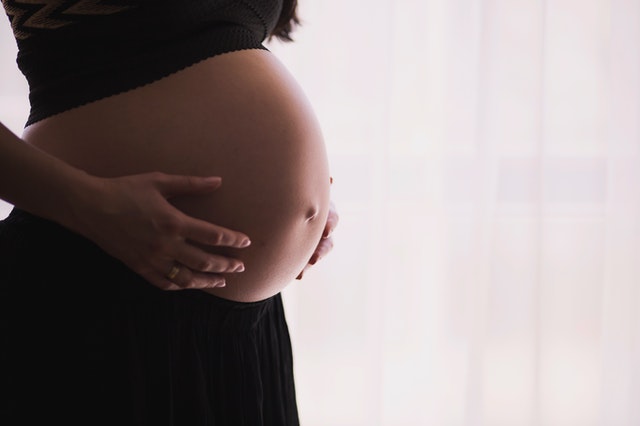
Pregnancy has three trimesters, each of which has its own set of challenges based on your body. Your body will undergo numerous changes while you are pregnant. These changes begin before you are even aware that you are pregnant. Here’s a list of things you might encounter while pregnant.
1. Separation of the Abdominal Muscles
During pregnancy, the majority of women diastasis recti. When the six-pack muscles stretch sideways, the connective tissue in the stomach’s middle line gets damaged, causing the abdominal muscles to separate. After the muscle expands, a pregnant woman develops a protruding stomach which you will notice after delivery.
Since the stomach expands to accommodate the baby, approximately 60% of pregnant women experience this condition. When the abdominal muscles expand, it causes functional pelvic floor problems, such as painful sex, urinating problems, back pains, and constipation in pregnant women.
Practice prenatal exercises that help to strengthen your core as a way of preparing for pregnancy. The exercises should target the oblique muscles and pelvic floor. These exercises should not cause back strains or make your tummy bulge out. In some women, the abdominal muscle will recover after pregnancy.
2. Morning Sickness
Morning sickness is common among pregnant women, though it does not affect all of them equally. Frequent vomiting and nausea is a signal of morning sickness. Morning sickness can strike at any time of the day, regardless of the name. Many women use morning sickness as the first sign of pregnancy.
The leading cause of morning sickness is the increased number of hormones produced by the body during the first few months of pregnancy. Morning sickness can aggravate excessive fatigue, travel, emotional stress, and having twins or triplets. You will have a different experience of morning sickness in different pregnancies.
Expect to have a reduced appetite if you experience nausea and vomiting. Morning sickness will strike you within the first two or three months of your pregnancy. If the problem persists after the fourth month, you should see a doctor for a checkup. The doctor will prescribe supplements to aid in the retention of food and liquids by your body.
3. Changes on your Breast
Your breasts will be tender and sensitive during pregnancy, and they will enlarge rapidly. These changes occur as the body adjusts to the pregnancy. The first 4-7 weeks of pregnancy get characterized by sensitive and tender breasts, which disappear after the first week of pregnancy. Depending on the trimester, you will notice different changes in your breasts during pregnancy.
Colostrum, which is the baby’s first food after birth, accumulates in the breast as the pregnancy progresses. During the 38th week, some women may experience colostrum leakage. These changes occur as a result of the body’s hormonal changes during pregnancy. Increased blood flow is another factor that makes the breast to be tender.
The same hormones that make the breast to be tender causes the breast to be sensitive, which makes the nipple painful. As colostrum production starts in the third trimester, the breast will experience pain and tenderness again. During pregnancy, each woman will have different experiences of pain in their breast.
4. Pregnancy Fatigue
It is common for a pregnant woman to get exhausted. Each woman will have her own experience; some women have no issue with fatigue. Fatigue starts is typical within first during the first trimester. During the second trimester, fatigue will go down, but it usually returns to the third trimester.
In the first stage of pregnancy, the body produces more blood to carry nutrients to the growing baby. Increased progesterone is the reason behind fatigue during pregnancy. Physical and emotional changes can also decrease your energy, making the pregnant woman feel sleepy all the time. In most cases, your energy will increase in the second trimester, making you feel better.
In the third trimester, fatigue will increase since your body is carrying extra weight. At this stage, you will deal with frequent urination more often and have trouble sleeping. You must have enough rest when you feel tired.
During pregnancy, there is a lot to enjoy and experience. Exercise appropriately for a healthy, less complicated pregnancy and to avoid unnecessary discomfort. When you’re tired, you should also get enough rest. Above is a list of common things you might encounter during your pregnancy and how to prepare for or deal with each one.

